Publications
Forget the Plank, Matey, and Tell Me about Your Bottom Line
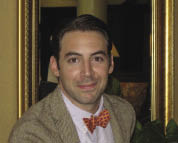
Peter T. Leeson
When the Leesons took their eight-year-old son Peter to Disney World, they could not have anticipated that his experience with the Pirates of the Caribbean ride would lead to a research project and book. In his book The Invisible Hook: The Hidden Economics of Pirates (Princeton University Press, April 2009), Peter T. Leeson, MA, PhD Economics ’05, looks at such legendary pirate captains as Blackbeard and Calico Jack Rackham and shows how pirates’ search for plunder led them to pioneer forward-thinking practices, such as workers’ compensation. Leeson writes, “Peg legs and parrots aside, in the end, piracy was a business.”
Leeson is BB&T Professor for the Study of Capitalism at Mason’s Mercatus Center and associate editor of the Review of Austrian Economics. A former visiting fellow at Harvard University and the London School of Economics, he blogs regularly at the Austrian Economists web site at austrianeconomists.typepad.com.
How many years have you been studying pirates?
If you’re willing to count my time on the Pirates of the Caribbean ride at Disney World as research, I began studying pirates when I was eight. Academically, I’ve been studying pirates for several years.
Was the research daunting? Did pirates keep decent records?
The research was probably the most academic fun I’ve ever had. Few pirates kept records themselves, but their contemporaries wrote a good deal about them, which is where most of our knowledge about pirates comes from.
What did you learn that surprised you the most?
I was surprised to learn that the Jolly Roger, the black flag with the skull and crossbones on it, was a genuine and important part of pirate history. I was also surprised to learn that perhaps as much as a third of the average early 18th-century pirate crew was black.
This isn’t the only unusual topic to which you have applied your analysis. I know you’ve blogged about Bigfoot. What other areas interest you?
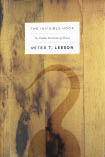
My research MO involves pursuing everything and anything I find interesting—from UFOs and Bigfoot sightings to pirates. I’m especially interested in how individuals create social order under anarchy. Since functional government is a relatively recent invention, I often find myself investigating how individuals pursued social order historically.
—Colleen Kearney Rich, MFA ’95
Faculty
Considering Transcendence: Elements of a Philosophical Theology
Martin J. De Nys, Associate Professor, Philosophy
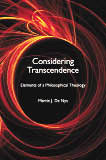
In Considering Transcendence: Elements of a Philosophical Theology (Indiana University Press, January 2009), De Nys uses a philosophical approach to religion to show the importance of diversity and knowledge within religious practices and how acquiring truth, knowledge, and discourse can help one achieve a higher understanding of the religious world. The book not only emphasizes the importance of straying from materialism, but also instructs the reader to embrace a world of self-awareness through the breakdown of religious expression, discourse, and human interaction.
Community-Based Warviews, Resiliency and Healing: The Internally Displaced Persons in Mindanao and the Karen Refugees on the Thai-Burmese Border
Al Fuertes, Assistant, Professor, New Century College

Community-Based Warviews, Resiliency and Healing (VDM Verlag, October 2008) shows how internationally displaced persons deal with the phenomenological realities of trauma and violence. Fuertes believes that despite the socio-economic, political, and psychological hardships they face, these populations are able to heal and rebuild through self-awareness and international community assistance.
The Cultural Turn in U.S. History: Past, Present, and Future
Mike O’Malley, Associate Professor, History and Art History
with James W. Cook and Lawrence B. Glickman
The first of three volumes, The Cultural Turn in U.S. History: Past, Present, and Future (University of Chicago Press, February 2009) discusses the genealogy of American cultural history by looking at its origins, adjacent fields, debates, and effects on mass media, public policy, and catastrophic events, ending with how cultural history may evolve.
Educating Global Citizens in Colleges and Universities:
Challenges and Opportunities
Peter N. Stearns, Provost
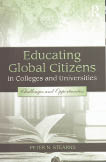
Educating Global Citizens in Colleges and Universities (Routledge, December 2008) addresses how American universities provide international education from historical, administrative, and critical viewpoints. Stearns provides insight and guidance on the principles of global education and covers concerns, problems, and suggestions for improvements that will strengthen the future of education for global communities.
Learning Communities in Practice
Anastasia P. Samaras, Assistant Professor,
College of Education and Human Development, with Anne R. Freese, Clare Kosnik,
and Clive Beck
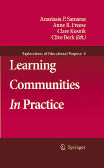
Learning Communities in Practice (Springer, November 2008) contains contributions by educators who share their research and practice in designing and implementing learning communities in school, university, and professional network settings. Combining scholarly and practitioner research, the book offers educators practical information.
The Inclusive Classroom: Strategies for Effective Differentiated Instruction
Tom Scruggs and Margo Mastropieri,
University Professors, College of Education and Human Development

In its fourth edition, The Inclusive Classroom (Prentice Hall, February 2009) offers practical and proven strategies for successfully including students with disabilities in general education classrooms. The text provides targeted strategies for the subject and skill areas, as well as special needs of individual students, with a strong focus on instructional strategies applied to specific student need areas.
The Odd Man Karakozov: Imperial Russia, Modernity, and the Birth of Terrorism
Claudia Verhoeven, Assistant Professor, History and Art History
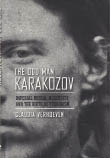
In The Odd Man Karakozov (Cornell University Press, March 2009), Verhoeven argues that Karakozov’s failed assassination attempt on Alexander II sheds light on the origins of terrorism. By looking at the history that produced Karakozov and, in turn, the history that Karakozov produced, Verhoeven shows terrorism as a phenomenon inextricably linked to the foundations of the modern world: capitalism, enlightened law and scientific reason, ideology, technology, new media, and, above all, people’s participation in politics and in the making of history.
Alumni
Words Gone Wild
Saadia Ali Aschemann, BA Government
and Politics ’93
FireFly Publishing, 2008
In her second volume of poems, Aschemann uses haikus and sonnets to show her observations and interpretations.
She won Best Poet in 2007 Preditors and Editors Readers’ Poll and was a featured poet in a short story collection called Blogger’s Delight: Stories of Love and Redemption. She recently completed her master’s degree in educational leadership at the University of Illinois at Springfield. She resides in Illinois with her husband and children.
Buzz Bradley and the Invisible Fort
Jeff Howe, BS Biology ’83
Llumina Press, 2008
Buzz Bradley and the Invisible Fort is a children’s book about school bully Stinky Gallagher and protagonist Buzz Bradley. After Stinky destroys Buzz’s fort, Buzz spends the summer determined to outsmart Stinky. With his vivid imagination, Buzz builds an imaginary fort and in the process has to convince his friends the fort exists. The second book in this series, Buzz Bradley and the Green River Ooze, will be released in late 2009.
Howe is the contributing editor for BowTie Inc. and writes a monthly column for Freshwater and Marine Aquarium magazine. In addition, his articles have appeared in Aquarium Fish International, Aquarium USA Annual, Outdoor Alabama, Nature Photographer, and Fisheye View.
Nothing But a Smile: A Novel
Steve Amick, MFA
Creative Writing ’91
Pantheon, 2009
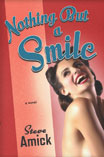
Set in pre- and post-World War II Chicago, this love story begins with Wink Dutton, a soldier and photographer recently discharged because of an injury to his hand. As Dutton desperately seeks to make ends meet, he discovers his neighbor Sal Chesterton pays the bills by producing pin-up girls for soldiers, even using herself as the object of affection. Amick writes about Dutton and Chesterton’s personal struggles to cope with the changes to American life after World War II.
Amick received a BA from St. Lawrence University. His short stories have appeared in Playboy, The Southern Review, The New England Review, Story, and McSweeney’s; in the anthology The Sound of Writing; and on National Public Radio.
The Endarkenment
Jeffrey McDaniel,
MFA Creative Writing ’93
University of Pittsburgh Press, 2008
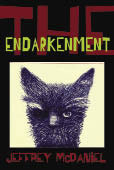
The Endarkenment delves into the world of poetry with vividly mature poems about family, sexuality, and society. The poems reflect an autobiographical glimpse of McDaniel’s life experiences—good, bad, funny, or serious.
The recipient of a fellowship from the National Endowment for the Arts, McDaniel has been published in Ploughshares, The Best American Poetry 1994, and The New Young American Poets. McDaniel is a professor at Sarah Lawrence College and lives in New York with his family. The Endarkenment is his fourth book.
Stronger after Stroke: Your Roadmap to Recovery
Peter G. Levine,
BA Speech Communication ’87
Demos Health, 2008
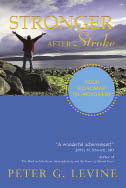
Written for stroke survivors, their caregivers, and their loved ones, Stronger after Stroke puts the power of recovery in the reader’s hands by providing easy instructions for reaching the highest possible level of healing.
Codirector of the Neuromotor Recovery and Rehabilitation Laboratory, Levine is a researcher with the Department of Rehabilitation Sciences at the University of Cincinnati in Ohio. He has been involved in stroke-specific rehabilitation research for almost a decade and has been published in journals and magazines.
The Convalescent
Jessica Anthony,
MFA Creative Writing ’04
McSweeney’s, 2009
The Convalescent tells the story of an unlikely hero named Seymour Akos Pfliegman. Set in the Virginia suburbs, the story mixes Hungarian history with the hero’s entrepreneurial adventures.
Anthony has been published in Best New American Voices, Mid-American Review, and New American Voices 2006. She won McSweeney’s Amanda Davis Highwire Fiction Award in 2004.